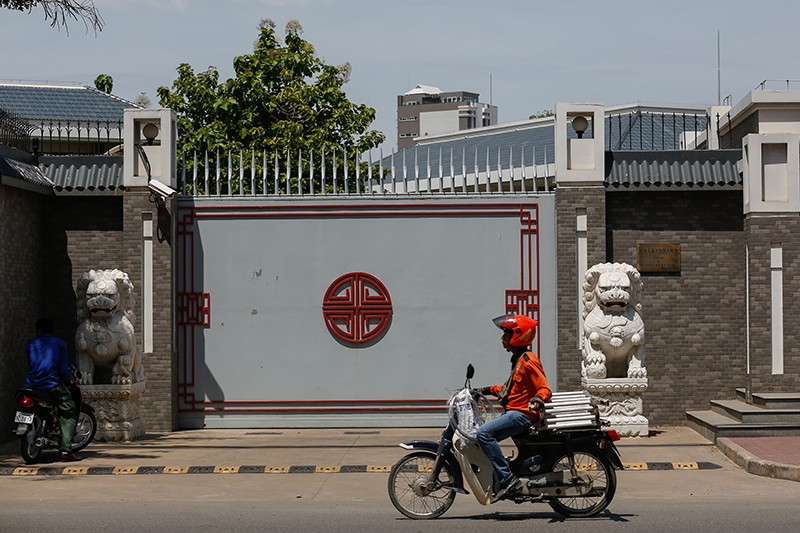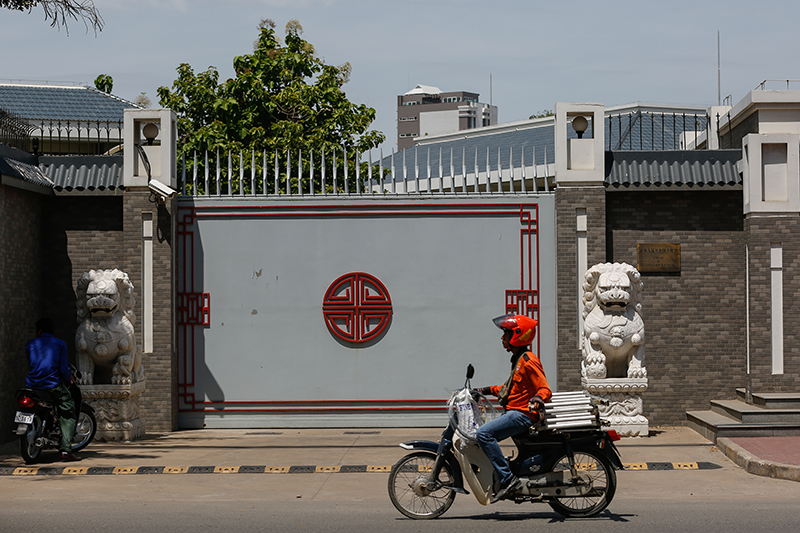When Yang Liqing’s body was found on the sprawling cassava plantation he managed in Pursat province in late 2014, police suspected he had been murdered by coworkers jealous about his recent promotion.
But 18 months later, police have yet to track down any suspects, and the case remains one of several unsolved murders involving Chinese nationals, which police say are a struggle to investigate due to language barriers and a lack of assistance from the Chinese Embassy.

Yang Liqing was not the first Chinese employee of the Pheapimex-owned plantation to meet an untimely end. In January 2012, supervisor Chang Fi Yiek was gunned down in broad daylight. No one has been arrested in that case, either.
Deputy Pursat police chief Keo Sokunthea, who is in charge of both investigations, said his officers were not to blame for the delay.
“It is difficult to find translators. When we want to talk with Chinese people, we don’t understand what they are saying,” he said. “We do not speak Chinese.”
Mr. Sokunthea also laid blame on Chinese Embassy officials and relatives of the victims, who often seem reluctant to assist police.
“The embassy has not helped us despite the fact that we sent a report to them” in both cases, he said. “Now, both the Chinese victims’ families have returned to China…. It is hard to contact them.”
The murder of businesswoman Hur Layang, 60—stabbed with a pair of scissors outside a Wing money transfer kiosk in Phnom Penh’s Meanchey district—was captured by a security camera. But the assailant remains at large.
Deputy district police chief Huor Minh Vang said that without the ability to interview the woman’s friends and family about potential enemies or past disputes, his officers were left hunting for men who resemble the attacker seen in the grainy video footage.
“We can only identify him from the back. He looks like a sturdy man with curly hair,” he said. “So far, we have questioned at least 10 men who look similar to that guy, but we have found nothing.”
Samleang Seila, country director for anti-pedophile NGO Action Pour Les Enfants, which routinely investigates cases involving foreign nationals, said cases involving suspected Chinese perpetrators were uniquely challenging.
“[We have] good cooperation with Western countries, but every time it comes to investigating Chinese nationals, there was no cooperation,” he said.
Mr. Seila said that while accessing Chinese translators was not particularly difficult, obtaining assistance from Chinese law enforcement agencies had posed problems his organization in the past.
“I think the challenge [is] more…about Cambodia and China, in terms of criminal investigation assistance and information sharing,” he said. “The two countries should work together.”
Chinese Embassy spokesman Cheng Hong Bo declined to comment for this story.
National Police spokesman Saran Komsath acknowledge that investigations into Chinese murders were often slow, but blamed the sluggish pace on high murder rate nationwide.
“Crime happens so often; there are at least seven [murder] cases per day across the country,” he said. “You should to think about the fact that we have 25 provinces.”
Lieutenant General Komsath also bristled at the suggestion that certain cases were left to gather dust because the victims were foreigners.
“We never give up on those cases,” he said. “We do not judge one nationality to be more important than another nationality. We need to protect the security of people of every nationality…but sometimes Chinese or American or Vietnamese people die.”
While nonviolent crimes committed by Chinese nationals in Cambodia—notably telephone and internet scams targeting residents of their home country—are often pursued relentlessly by Chinese authorities, Lt. Gen. Komsath said the difference lay in where the victims lived.
“After they investigate in China and know that a group of people is hiding in Cambodia, they can cooperate with us to arrest the suspects,” he said.
But for the victims of more serious crimes in Cambodia, even getting local police to stay on the case can be a lost cause.
It’s been more than a year since construction supervisor He Pei Gang, 55, was found dead in Kratie province with two deep wounds to the head, lying next to a generator used for road repairs being carried out by Chinese-owned Shanghai Construction Group.
On Wednesday, Huot Lim Heang, chief of the provincial police’s serious crime bureau, said his officers had, predictably, identified no suspects.
“Oh, that case. We are almost forgot about it,” Mr. Lim Heang said. “We are still investigating.”




